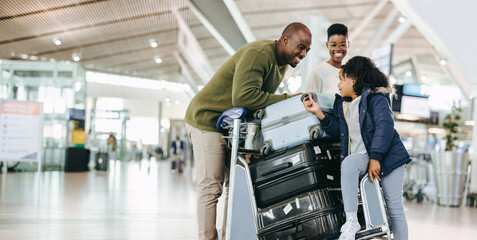Travel is one of life’s most enriching experiences, offering the chance to explore new cultures, enjoy breathtaking landscapes, and create memories that last a lifetime. However, planning a perfect trip can be complex and time-consuming. From booking flights and accommodations to arranging activities and transportation, every detail matters. This is where expert Travel Agent Franklin TN steps in, simplifying the travel process and creating seamless experiences that allow travelers to focus on enjoyment rather than logistics.
The Role of Expert Travel Agents

Travel agents are more than just booking professionals—they are consultants, planners, and problem-solvers. They possess extensive knowledge of destinations, accommodations, activities, and travel regulations. Their expertise enables travelers to maximize their experience while minimizing stress.
Whether planning a luxury vacation, family getaway, adventure trip, or business travel, expert travel agents offer tailored solutions that meet the unique preferences, needs, and budgets of each traveler. They handle all aspects of the journey, ensuring a smooth and enjoyable experience from start to finish.
Why Travelers Rely on Expert Travel Agents
Even with the abundance of online booking platforms, travelers often prefer working with travel agents for several reasons:
- Time Savings: Planning a trip requires extensive research and coordination. Travel agents manage every detail, freeing travelers to focus on enjoying their journey.
- Expert Guidance: Agents provide informed recommendations based on destination knowledge, local insights, and travel trends.
- Personalized Itineraries: Each traveler has unique preferences. Travel agents create custom itineraries tailored to individual interests and schedules.
- Access to Exclusive Deals: Travel agents often have connections and partnerships that allow access to promotions, upgrades, and experiences unavailable to the public.
- Emergency Support: From flight cancellations to lost documents, agents provide assistance to ensure travelers remain stress-free.
By combining expertise, personalized service, and support, travel agents help make every journey seamless and memorable.
Services Offered by Expert Travel Agents
Professional travel agents provide a wide range of services designed to cover all aspects of travel. Their goal is to create a well-coordinated, stress-free experience for every traveler.
1. Customized Vacation Planning
Travel agents work closely with clients to understand their interests, preferences, and budget. Based on this information, they develop detailed itineraries that enhance every aspect of the trip. Services include:
- Selecting destinations and attractions suited to the traveler’s interests
- Designing daily schedules for sightseeing, relaxation, and activities
- Recommending accommodations, dining, and local experiences
- Providing guidance on travel essentials such as visas, vaccinations, and cultural etiquette
Customized planning ensures that travelers enjoy a journey tailored specifically to their needs, making each experience unique and memorable.
2. Flight and Transportation Coordination
Booking flights and coordinating transportation can be challenging, particularly for international travel. Travel agents manage:
- Comparing flights to find the best routes, schedules, and fares
- Coordinating connecting flights, layovers, and airport transfers
- Arranging ground transportation, including trains, buses, and private transfers
- Advising on travel insurance and flexible ticket options
Proper transportation planning ensures a smooth journey from departure to arrival, reducing the risk of delays or disruptions.
3. Accommodation Booking
Comfortable and convenient accommodations are essential to a successful trip. Travel agents assist with:
- Hotel bookings, ranging from budget-friendly options to luxury properties
- Vacation rentals for families, groups, or longer stays
- Boutique or unique lodging experiences
- Special requests such as room upgrades, accessibility features, and amenities
By selecting accommodations that align with travelers’ preferences, agents enhance comfort, convenience, and overall satisfaction.
4. Activity and Excursion Planning
Experiences are the heart of travel. Travel agents curate activities and excursions that cater to individual interests:
- Guided tours of cultural, historical, or natural attractions
- Adventure activities such as hiking, diving, or wildlife exploration
- Culinary experiences, workshops, and local cultural interactions
- Pre-booked tickets for events, museums, or shows
By coordinating activities in advance, agents help travelers enjoy immersive and hassle-free experiences.
5. Travel Documentation and Support
Travel often involves legal and logistical considerations. Travel agents provide guidance and assistance with:
- Visa applications and passport requirements
- Travel insurance recommendations
- Health and safety advice, including vaccinations and local regulations
- Emergency support for cancellations, delays, or other unexpected situations
This support ensures travelers can focus on their trip without worrying about administrative or regulatory issues.
6. Specialized Travel Services
Expert travel agents also cater to niche travel preferences, providing tailored services for specific types of trips:
- Luxury Travel: Exclusive accommodations, private tours, and personalized services
- Family Vacations: Kid-friendly activities, family-oriented accommodations, and flexible itineraries
- Adventure Travel: Active excursions, guided tours, and outdoor experiences
- Romantic Getaways and Honeymoons: Private experiences, romantic activities, and tailored itineraries
- Group and Corporate Travel: Planning and coordination for teams, conferences, or group tours
These specialized services ensure that every traveler enjoys a personalized and memorable experience.
Benefits of Working with Expert Travel Agents
Traveling with the support of a professional agent offers numerous advantages:
Expert Recommendations
Travel agents provide insider knowledge about destinations, accommodations, and experiences. This guidance allows travelers to enjoy the best experiences while avoiding common pitfalls.
Cost Efficiency
Contrary to popular belief, using a travel agent can save money. Agents have access to exclusive deals, package discounts, and promotions that reduce overall costs while enhancing the travel experience.
Stress-Free Planning
Planning a trip involves multiple tasks, from booking flights to scheduling activities. Travel agents manage all details, providing a stress-free planning process.
Emergency Assistance
Travel disruptions, cancellations, or unexpected events can occur at any time. Travel agents provide immediate support, ensuring solutions are found quickly and minimizing inconvenience.
Personalized Travel Experiences
Each traveler is unique. Expert agents craft itineraries that reflect personal preferences, ensuring every journey is meaningful, enjoyable, and tailored to individual interests.
How to Choose the Right Travel Agent
Selecting a reputable and experienced travel agent is essential for a seamless travel experience. Key factors to consider include:
- Experience and Expertise: Look for agents with a proven track record in planning a variety of travel experiences.
- Credentials and Affiliations: Memberships with professional travel organizations indicate credibility and industry knowledge.
- Client Reviews and Testimonials: Feedback from previous clients helps gauge service quality and reliability.
- Range of Services: Ensure the agent provides comprehensive services, including planning, booking, and support.
- Communication and Responsiveness: Choose an agent who listens, understands your preferences, and communicates clearly throughout the planning process.
Trends in Travel Planning
The travel industry continues to evolve, and expert agents adapt to changing preferences and trends. Key trends in modern travel planning include:
- Sustainable Travel: Eco-friendly accommodations, responsible tours, and environmentally conscious activities
- Wellness Travel: Retreats, spa experiences, and health-focused itineraries
- Experiential Travel: Local cultural workshops, culinary experiences, and hands-on activities
- Technology Integration: Online booking platforms, mobile itineraries, and virtual consultations
By understanding and incorporating these trends, travel agents provide experiences that are modern, meaningful, and aligned with traveler expectations.
The Importance of Seamless Travel
A seamless travel experience is more than convenience—it enhances enjoyment and ensures that every moment of the trip is memorable. Expert travel agents provide structure, organization, and personalized attention that make travel smooth and worry-free. Travelers benefit from professional guidance, insider insights, and reliable support, allowing them to focus on creating lasting memories rather than managing logistics.
Whether embarking on a luxury getaway, family vacation, adventure expedition, or romantic escape, seamless travel planning ensures that every detail is considered, every challenge is addressed, and every experience is maximized.
Expert travel agents play a crucial role in making travel experiences seamless, enjoyable, and memorable. By providing personalized planning, professional guidance, and comprehensive support, agents allow travelers to focus on what matters most: exploring new destinations, experiencing different cultures, and creating unforgettable memories.
From flight coordination and accommodation booking to activity planning and emergency support, expert travel agents manage every aspect of the journey with precision and care. Their knowledge, experience, and connections allow travelers to enjoy stress-free, customized experiences that go beyond ordinary travel.
Investing in professional travel services is an investment in peace of mind, convenience, and enriching experiences. Whether planning a solo adventure, family vacation, luxury escape, or group journey, expert travel agents ensure that every trip is thoughtfully curated and flawlessly executed.
Seamless travel is not just a luxury—it is a reality made possible by the expertise and dedication of professional travel agents, turning every journey into an extraordinary adventure.
